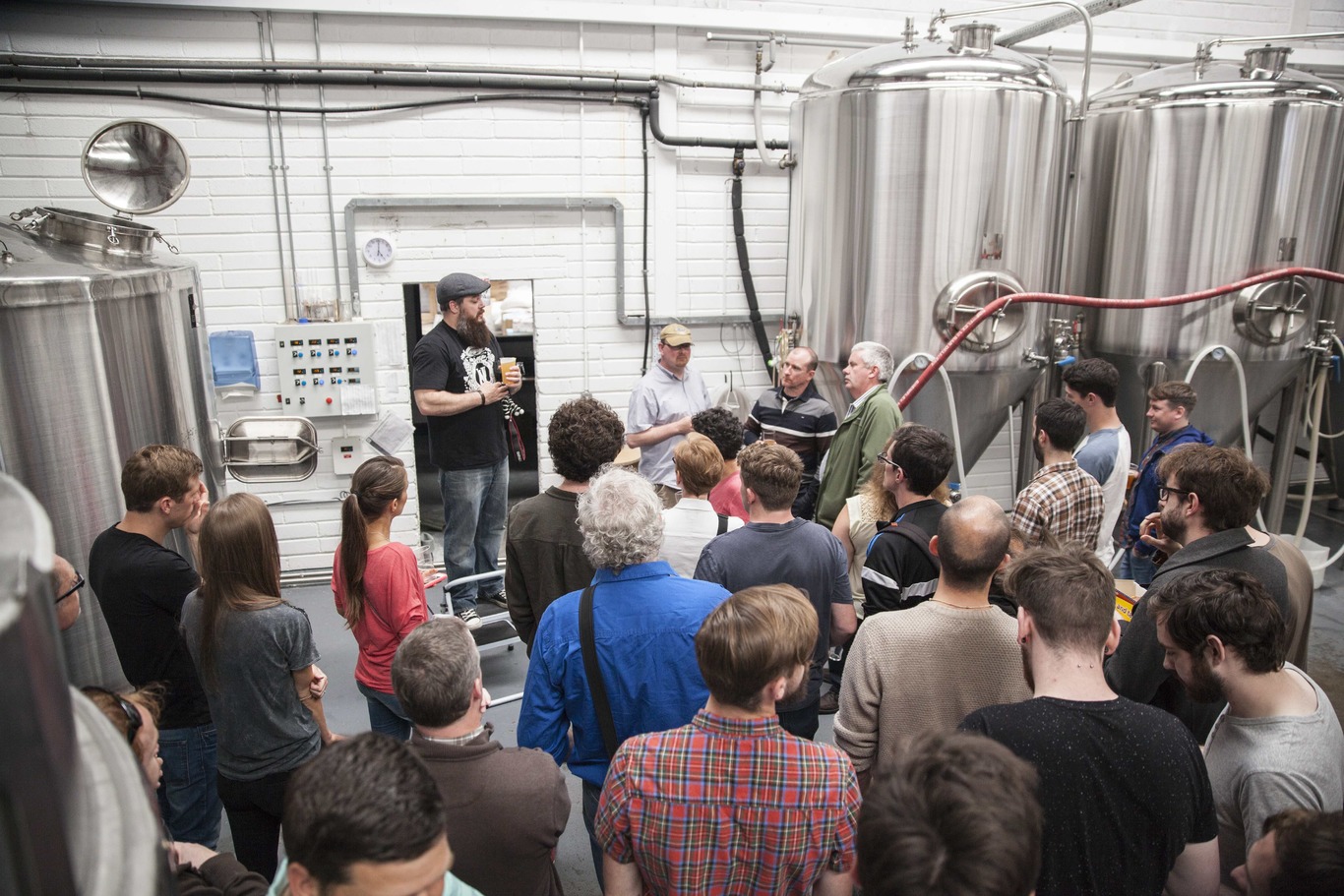Independent distillers and brewers are funding themselves by offering 'bragging rights' to fans
These small-scale drinks producers covered their set-up costs through private membership schemes.
MAKING CRAFT BEER can be hand-to-mouth stuff, no matter how successful you are.
So says Paul Mullin, managing director of The White Hag Irish Brewing Company in county Sligo, which plans to bankroll its barrel-aged beer through a crowdfunding project.
Barrel aging is a slow, expensive process. The beer is put into a barrel that was previously used to hold wine, whiskey, brandy or sherry. The brewer adds yeast to the mix and then waits one to two years for the beer to mature.
The retail value for barrel-aged beers is high, but they can only be made in small batches because production is so labour-intensive.
“This is a style of beer that has been much in demand,” Mullin tells Fora. “It’s like a high-end cognac or a grand wine. It’s in the upper end of the beer scale.”
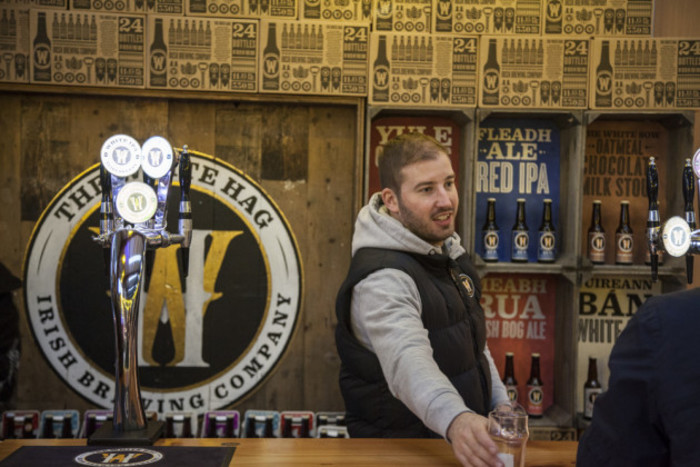 Paul Mullin
Paul Mullin
Mullin says he knew there was an appetite for that type of beer when White Hag’s first barrel-aged series, Black Boar, was added to the tasting menu at Michelin-starred restaurant Chapter One.
“We said we need to do this at scale, which doesn’t mean millions of litres,” he says. “We wanted to gather enough barrels so we could have a really good run of barrel-aged beers that we could sell across Ireland and Europe next year.”
The challenge was finding a way to fund the project up front.
Normally, there is a 10-week lead-in from when the brewery invests in the raw materials to getting it out to shops or behind bars, Mullin says.
“For cash flow, you don’t get the money in for another month or two months, depending on who the customer is.
“If you’re putting a huge amount of resources and material and product into a barrel for 12 months, then the pay-off time and cash flow takes a serious hit. We really couldn’t afford to do it.”
To kick-start the barrel-aged initiative, the company has launched an programme where fans can adopt a barrel in exchange for alcohol.
Customers pay €250 for a 225-litre barrel and gain returns from that barrel for the next three years.
“We came up with a way to ensure that people who like the brewery and like the beer and like our style got a chance to support us in a small way. The pay-off is, you invest €250 in us now and we’ll give you €360 worth of beer back over three years. We’re getting real beer nerds buying the consumer barrels.
“What it essentially means is that we can add 2,500 litres of capacity to our fermentation without having to worry about funding that up front.”
As well as getting beer, investors will be invited to The White Hag’s birthday party in the brewery.
There are 100 barrels set aside for individual buyers with another 10, larger barrels – 500 litres each – for commercial customers. Mullin says there is only one large barrel left to adopt while over 80 of the consumer barrels have been sold.
‘Lifestyle investment’
However the White Hag is from the only company in the drinks business that’s using crowdfunding to bankroll expensive projects.
Boann Distillery in Co Meath has launched a ‘cask society’, where 500 casks of whiskey will be offered to customers with prices starting at €5,800. The first handful of customers joined the society this week.
Pat Cooney, who co-founded Boann, describes the venture as “a lifestyle investment”, as opposed to a commercial investment.
Cooney – who sold his drinks distribution business, the Gleeson Group, to beer giant C&C in 2012 – says that, for customers, the project is about “learning the story and the making of whiskey”.
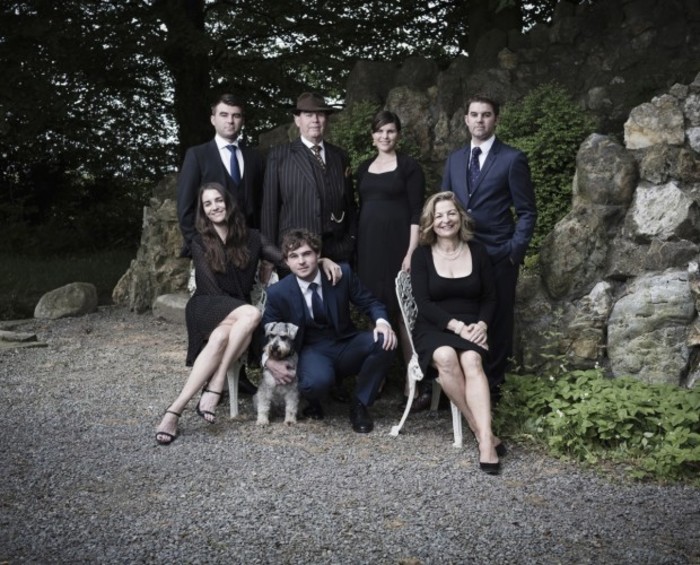 The Cooney family
The Cooney family
“They can come along (to the distillery). They can distill the whiskey, put their name or coat of arms on the barrel, put the barrel in the cellar, age it for three years. At the end of the three years, they can age it longer, blend some of it or age it with older whiskeys. They are involved in the distilling every stage along the way.”
As well as getting at least 200 litres of bourbon, sherry or port in return, members will be invited to an annual cask society dinner where they can meet their “colleagues in arms”.
For Boann – which is not yet fully operational and won’t start distilling until early next year – the initiative covers some of the cost in setting up, but Cooney says it will also help the company “identify with customers and build a relationship with them”.
Exclusivity
Dingle Distillery had a couple of different fundraising schemes on the go to cover a chunk of its initial operational costs. The one that gained the most publicity was the ‘founding fathers’ members club.
The fist 500 casks of whiskey produced in the distillery were pre-sold to individuals for at least €6,000 each.
The casks are housed in Dingle for five years, after which investors are given three options: they can keep the casks in the distillery for longer, bottle it themselves or sell it back to Dingle Distillery.
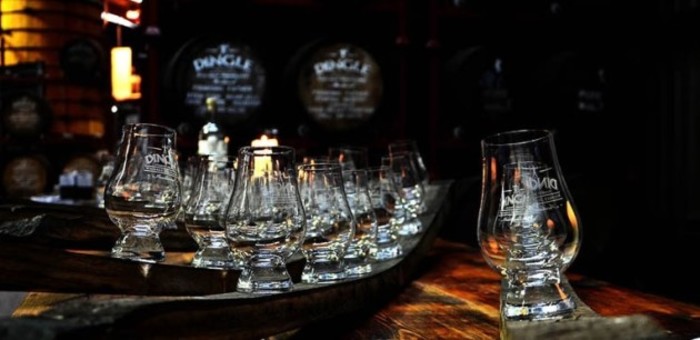
The majority of the casks were sold in 2013 and most of them will be matured by 2018.
In hindsight, “we could have done a lot more than 500,” Peter Mosley, co-owner of Dingle Distillery, tells Fora, before adding that “the exclusivity might have been lost” if production was increased to 1,000.
Mosley says that many of the founding fathers have “become involved in the distillery in an informal, ambassadorial role”.
He says some of them bought into the scheme from a financial perspective, with the hope of selling the whiskey to a third-party, but many others “wanted it because it is, in some sense, historic”.
“It was the first distillery of its type to be built in Ireland in 150 to 200 years,” he says. “There’s an element of some people just wanted it for bragging rights. They could say they have their own cask in Dingle.”
Networking
Similar to the crowdfunding initiatives run by The White Hag and Boann, the founding fathers are invited to an annual party in Dingle village, which “works quite well for them as a networking event”.
The €3 million generated through the membership scheme covered part of the set-up costs, but “didn’t go a tremendous way”, Mosley says.
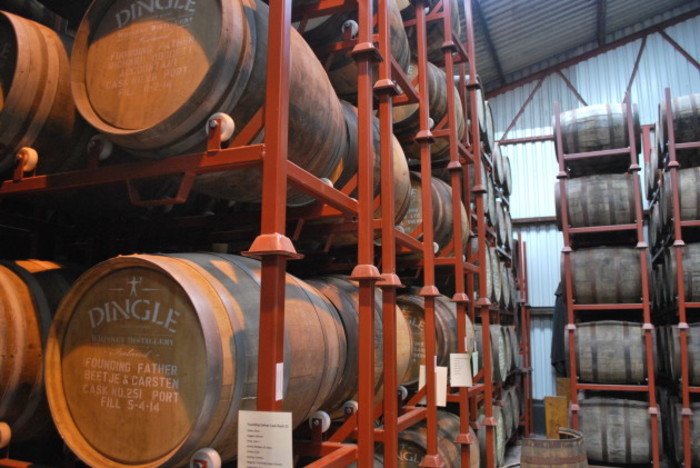 Dingle Whiskey casks
Dingle Whiskey casks
While the distillery waits for its whiskies to mature, it has been selling vodka and gin, the latter of which has taken off as a brand in its own right.
“We’d like to say that we looked into a crystal ball and that we knew gin was going to be the next fashionable drink,” Mosley says. “There may have been a little bit of that. Certainly, there was some growing interest in gin, but we didn’t expect it to be quite as big as it is.
“In many ways, we started off as a whiskey distiller with a bit of gin on the side … Now, we’re as much a gin distillery with whiskey on the side. That will change as we start to release whiskey on the market.”
He says Dingle Gin has helped raise the profile of the business, which Mosley expects will “make it easier when we knock on the door with a case of whiskey in our hand”.
